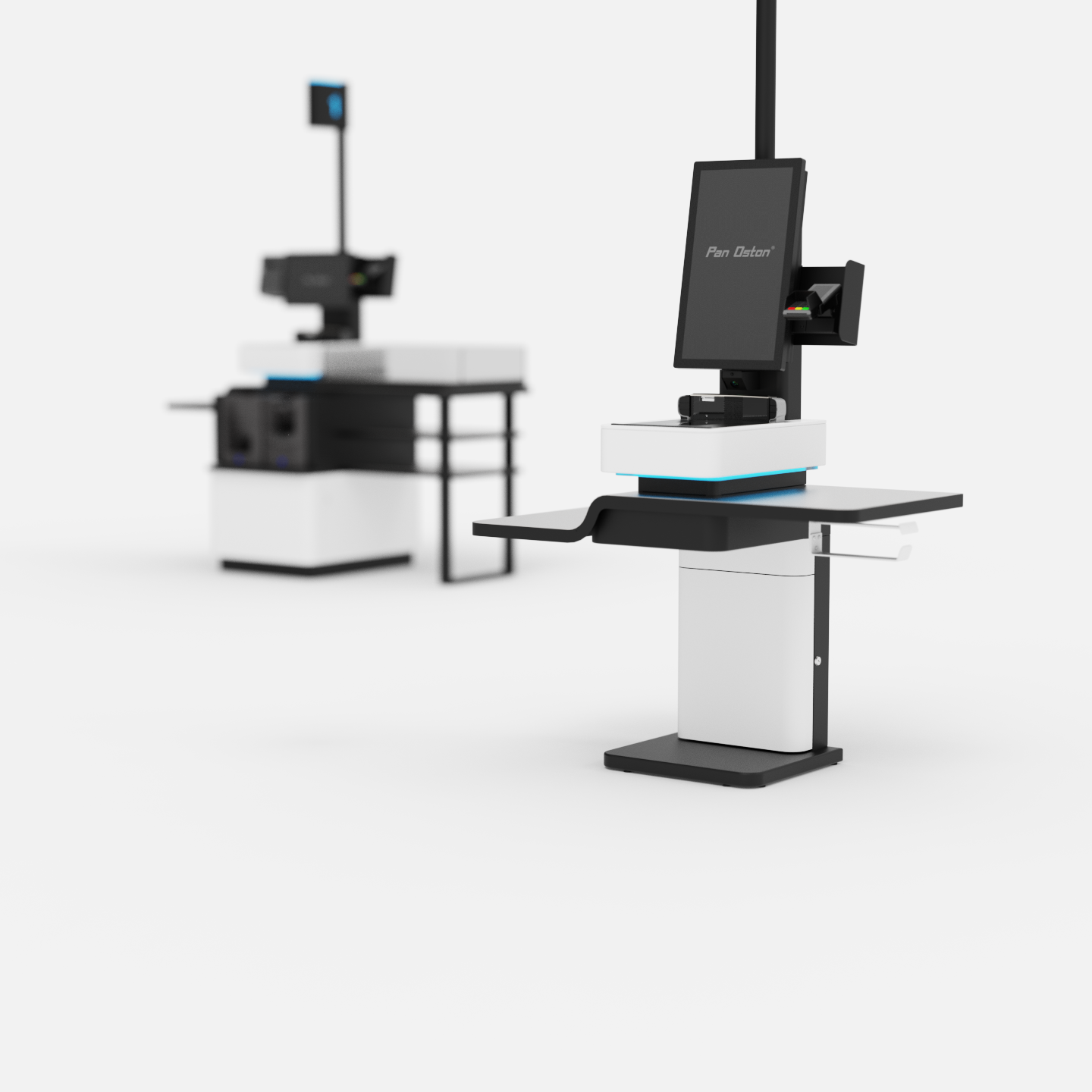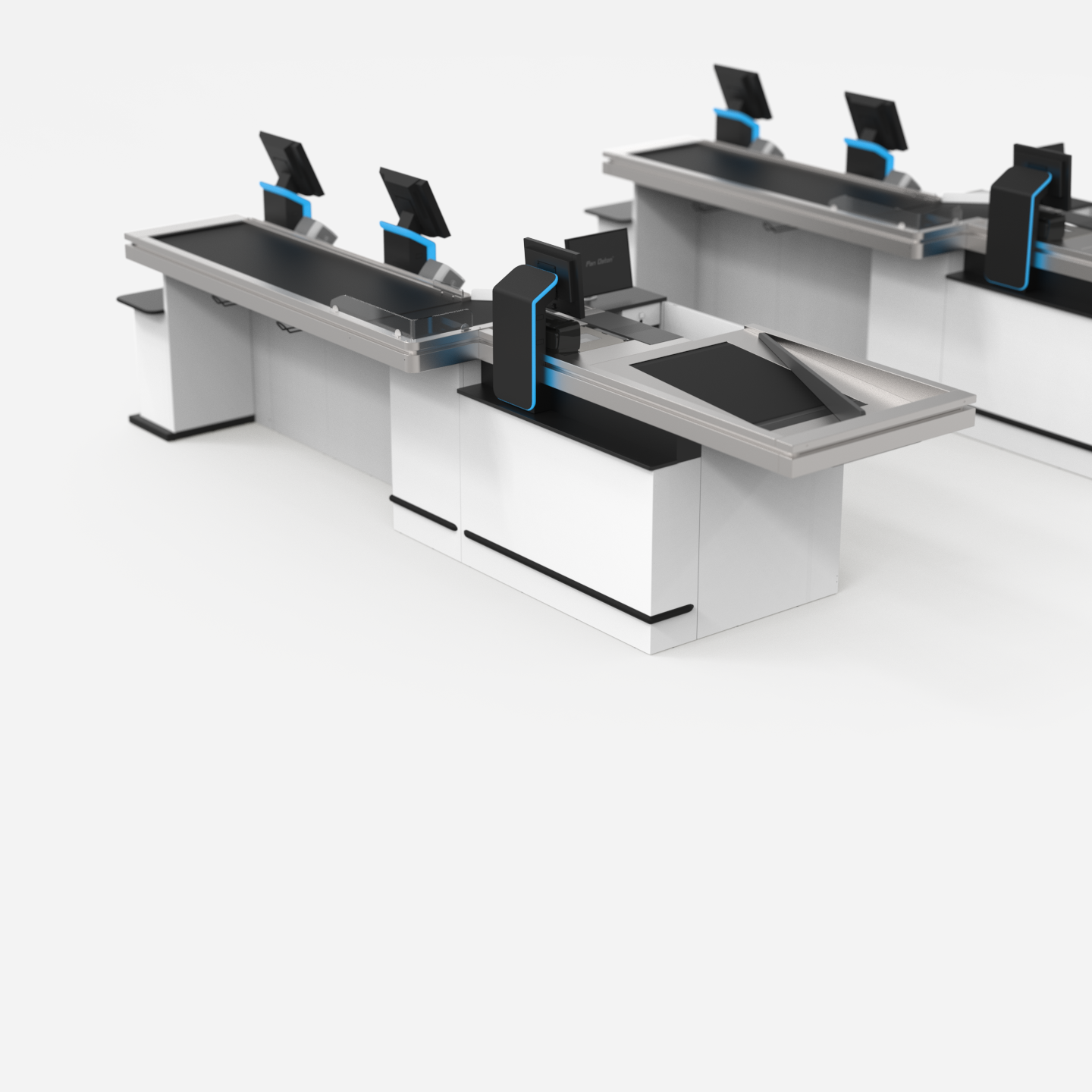Solving staff shortages with self-service kiosks & checkouts
Shortages have become an all-too-common feature of our daily lives during the last two years, with the COVID-19 pandemic and Brexit leading to supply chain shortages, spikes in consumer demand and labour shortages. Whether you are going to a supermarket to do your weekly food shopping or visiting a petrol station to refuel your car, you are likely to have encountered a shortage. Supermarket food shortages were particularly prevalent around the onset of the first COVID-19 lockdown in March 2020, while fuel shortages have become the prime personal shortage for many of us since September this year and are continuing to affect many of us. Labour shortages are another significant issue, with recent data from the Office for National Statistics (ONS) revealing that there are more than 1 million job vacancies across the UK economy.
The question is, how do we solve the many shortages that we face now and in the future? While each shortage has its own individual circumstances, and no single solution will be able to completely solve a shortage, existing solutions are available that may help to alleviate many of the shortages that we face. Self-service technology is already helping to reduce costs and increase the profits of businesses across many sectors, so could it be utilised to help solve shortages? We explore how self-service technology can help.
SELF-CHECKOUTS FREE EMPLOYEES FROM THE CHECKOUT OPERATOR ROLE
Self-checkouts are a well-established form of self-service technology that has been deployed by many retailers, including supermarkets, in the checkout zone. A key benefit of self-checkouts is that they require far fewer employees compared to traditional in-store checkouts. Typically, one employee can oversee between 4-6 self-checkouts which frees between three and five employees from the self-checkout operator role. During a shortage, every single employee counts and could potentially help with critical shortage-related tasks.
.jpg)
The employees that have been freed up from being a checkout operator can be redeployed in other roles such as inventory management, delivery management and stock replenishment. All of these roles are critical in the event of a stock shortage, and they can help to ensure that any shortage periods are minimised, and steps are taken to mitigate against their impact. This may have been particularly useful during the supermarket shortages in March 2020, as a greater number of employees would have been available to assist with the stock issues instead of being required to operate in-store checkouts.
Self-checkouts can be adopted by retailers across almost all sectors, from supermarkets and DIY shops to furniture shops and garden centres. They are a great investment option for retailers due to their numerous benefits in addition to the clear return on investment that they can deliver.
SELF-ORDERING KIOSKS HELP YOU TAKE ORDERS WITHOUT EMPLOYEES & MANAGE STOCK
Ordering or pre-ordering products in-store is rarely an easy or enjoyable experience for customers or businesses. Orders are often placed at a traditional retail counter that is staffed by an employee. Customers are required to join a long queue, which inevitably causes frustration and may even result in them going to a competitor if the queue is too long. The ordering process is also vulnerable to employee shortages as every order or pre-order has to be taken by an employee. If you cannot hire enough employees or if you encounter multiple absences due to illness or isolation as was the case during the so-called “pingdemic”, your entire ordering process is at risk of at the least delivering a poor customer experience or at worst forcing the closure of your business if you do not have enough employees to operate safely.
Adopting self-ordering kiosks helps you to maintain your ordering process for your customers by reducing or removing your reliance on employees to take orders. Delivering an efficient, fast and friendly ordering experience is easy with self-service kiosks. Your customers will be able to place orders and pre-orders at a stylish digital touchpoint, where they can also make a payment for their order. When they are placing their order, you can highlight the latest offers and deals to them, which is a great up-selling and cross-selling opportunity. We have found that customers spend up to 30% more when self-ordering. By adopting self-ordering kiosks, you can increase the resilience of your business and ensure that it can continue to accept orders and operate even in the event of an employee shortage.
(1).jpg)
Collecting pre-orders is also simplified with self-ordering kiosks. Customers will be able to place a pre-order without waiting in a queue in the main checkout zone. Each pre-order placed through the interactive kiosk can be immediately sent into any existing retail software and stock management systems, which ensures that stock levels remain up to date. Keeping stock levels updated helps you to judge when to place orders for further stock and replenish your shop/store, which can help to prevent any stock shortages from occurring in the first place and prepare your business for spikes in consumer demand.
SELF-SERVICE KIOSKS CAN WELCOME VISITORS & CUSTOMERS INTO YOUR BUSINESS
First impressions count in business. The welcome that you provide to your visitors and customers can make all the difference as to whether they positively engage with you. Many businesses rely on a receptionist to provide this initial greeting, but what would your business do if there was a shortage of receptionists or if your receptionist is required to complete other duties in the office?
Self-service kiosks can provide the perfect professional welcome to visitors and customers when they visit your business. The friendly and professional welcome starts from sending the first invitation to the moment that they arrive at your front door. Make the right first impression in a quick, easy and efficient way. Welcoming visitors will no longer rely on your reception team, and visitors will be able to enjoy a modern and professional welcome. It is also possible to efficiently communicate essential visitor information about parking, visitor arrangements and fire safety procedures.
Businesses that have adopted a self-service reception kiosk are resilient against reception shortages and provide a modern and professional welcome to their visitors and customers.
INFORMATION KIOSKS PROVIDE INFORMATION TO CUSTOMERS & EMPLOYEES
Providing information to customers and answering their questions and queries is an important way to encourage customers to make a purchase and become loyal customers in the future. Unfortunately, it is all too common for customers to not be able to find the information that they need or receive answers to their questions. Delivering information to customers and answering questions is part of the role of a customer services assistant. However, with worker shortages many retailers and businesses are unable to hire the employees that they need to help their customers in-store. For many businesses, a different and more reliable solution is required; fortunately, self-service technology already provides the perfect solution.
Information kiosks place important information at your customers' fingertips. You can easily deliver information in a friendly and accessible way that your customers will love. Each interactive kiosk has a large touchscreen that acts as a recognisable touchpoint in every customer environment. Answering customer questions is hassle-free as a live chat, or chatbot facility can be integrated into the information kiosk. Questions can then be answered by a central team if they require human input or by a pre-programmed chatbot. In either case, the customer can access the information that they require without having to rely on a customer services assistant.
.jpg)
The power of information kiosks does not end with providing information to customers; they can also be used to deliver key information to your employees too. Almost all businesses have documented policies, procedures and plans that they retain for the use of their teams. However, many businesses rely on key employees to maintain and even provide key company information to other employees. What would you do if these key employees left your company, and you could not hire replacements due to a shortage? This is where an information kiosk can take over and become a single point of reference for all your employees. Why not use an innovative kiosk instead of paper handbooks or key employees to provide information to your teams?
OUR SELF-SERVICE TECHNOLOGY SPECIALISTS ARE READY TO HELP
Our self-service technology specialists are ready to help your business reduce and even solve shortages and become more resilient to tomorrow's challenges. We deliver innovative self-service solutions that reduce your reliance on employees and future-proof your business. Our self-service solutions, which include self-checkouts, self-ordering kiosks, self-service kiosks and information kiosks provide you with the ultimate flexibility as they are software and hardware independent. This gives you the freedom to choose the technology that best fits your business and any existing software and systems that are in place.
Our client base includes businesses of all sizes including Subway, Starbucks, SPAR, M&S, BRP Systems and Churchill's. Pan Oston's team of over 165+ specialists with over 50 years of experience have the in-house design, manufacturing and project management capabilities to help you adopt the right self-service solutions for your business. Choosing Pan Oston means that you will be working with an award-winning company that has won the prestigious Red Dot Design award and is committed to delivering innovative solutions.
Why not find out how we can help your business reduce its reliance on employees in key areas and prepare for stock shortages? Contact our UK sales team today to discuss your requirements with one of our specialists.


.jpg)

.jpg)